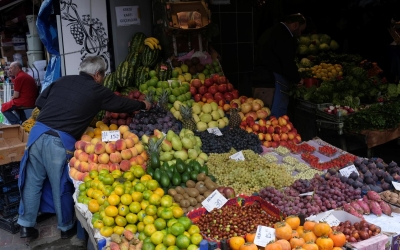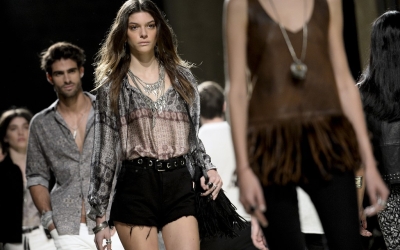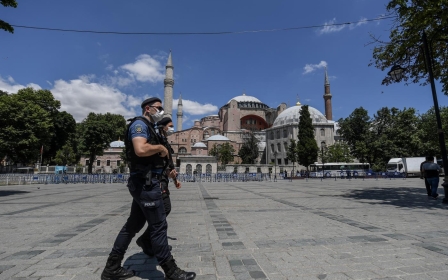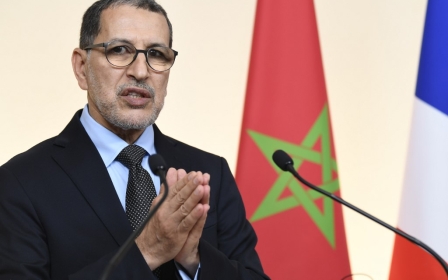Morocco's restrictions on Turkish goods raise suspicions it's joined Saudi boycott
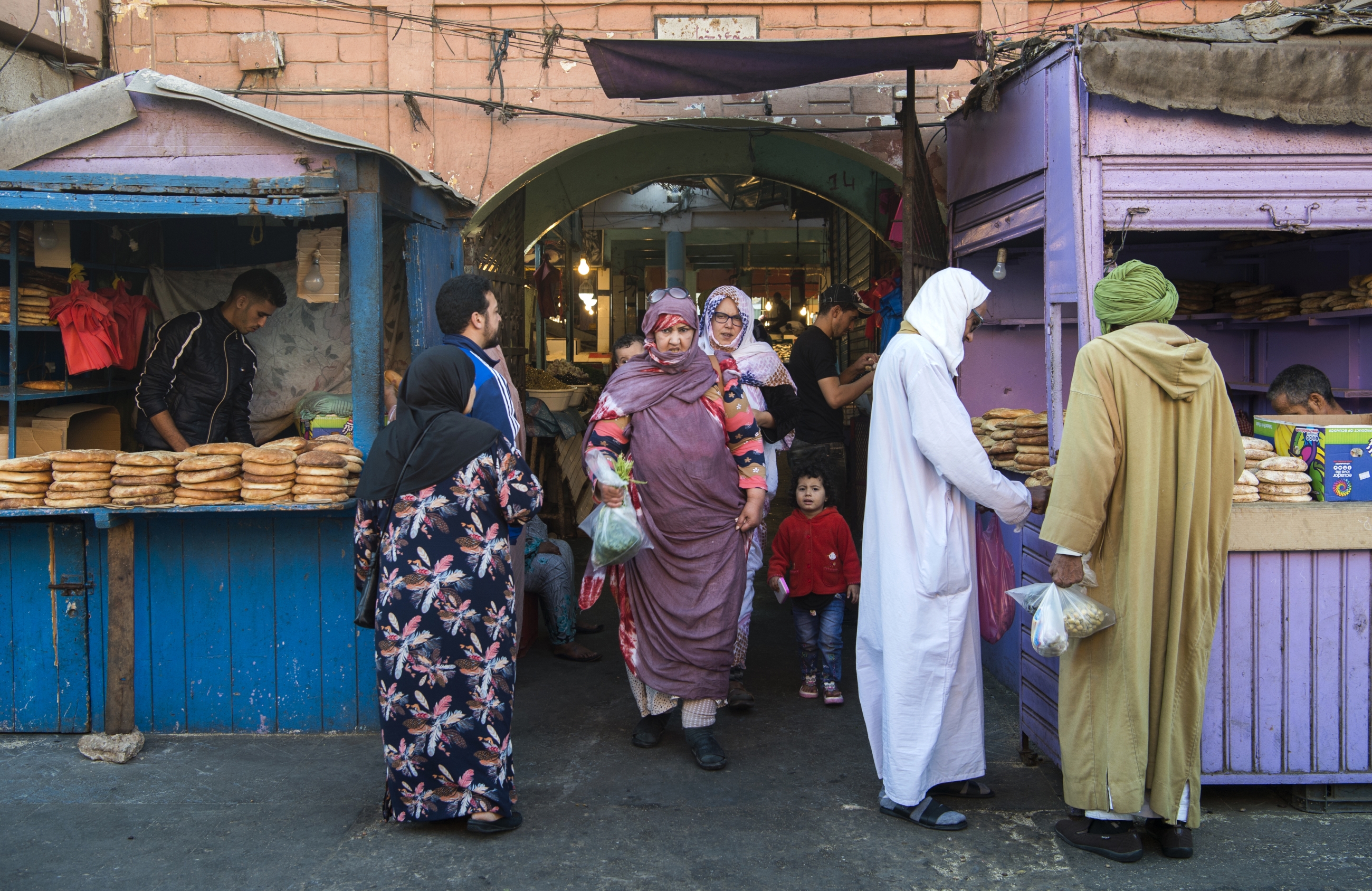
A raft of restrictions imposed by Morocco on Turkish goods has abruptly severed economic ties between the two countries and raised suspicions that Rabat has joined a Saudi-led informal boycott.
On 15 October, Morocco placed restrictions on products manufactured in Turkey and Turkish supermarket chains, as well as hiking taxes on imported Turkish goods by 90 percent.
The move last week came a day before Morocco's cabinet approved a review of the free trade agreement signed between the kingdom and Turkey in 2004, which Royal Court spokesman Abdul Haq al-Marini said would “correct the imbalances in the trade balance between the two countries in recent years."
According to Rabat, the agreement with Ankara, in force since 2006, has caused the Moroccan economy to suffer financial losses of nearly $2bn a year. In January, Moroccan Trade Minister Moulay Hafiz Elalamy informed parliament that the country was offering Turkey two options: either revise the agreement and find solutions or see it end.
Turkish exporters are already facing difficulties.
Last year, Middle East Eye revealed Saudi Arabia had begun enforcing an informal ban on Turkish goods, which this month hit the international fashion scene.
As a result, Turkey has seen its overall exports fall by 20 percent and its foreign trade deficit double since January, following tax hikes and high tariffs at customs in Morocco and Algeria over perceived “unfair” competition from Turkish textile producers dominating the local market.
Earlier this month, the head of the Saudi Chamber of Commerce, Ajlan al-Ajlan, called for a boycott of “everything Turkish”, including investment, tourism and imports, following claims by Turkish President Recep Tayyip Erdogan that some countries in the Gulf were targeting Turkey with destabilising policies.
Translation: The boycott of everything Turkish, whether on the level of import, investment or tourism, is the responsibility of every Saudi - trader and consumer - in response to the continued hostility of the Turkish government against our leadership, our country and our citizens.
Following the call, "Boycott Turkish products" began trending on social media with a number of clothing suppliers choosing to relocate their operations outside of Turkey.
Many are speculating that Morocco could have been convinced by Saudi Arabia to follow suit.
“There are two schools of thought here," Haizam Amirah-Fernández, senior analyst at the Elcano Royal Institute, told MEE.
"One will view the decision as part of a 'boycott' joining other Arab countries, mainly those forming an axis that is opposed to Turkey. Other people believe this decision is due to Morocco viewing the agreement as harmful to its economy, that is why it has been amended. Most likely the truth is in between these schools of thought."
Last weekend, eight leading groups of Turkish businesspeople, including the Foreign Economic Relations Board, the Turkish Exporters' Assembly, and the Union of Chambers and Commodity Exchanges of Turkey, urged Saudi Arabia to take concrete steps to resolve the problems, insisting that the boycott will have a negative impact on both Saudi Arabia and Turkey.
Moroccan analyst Ali Lmrabet notes that Rabat closed down schools linked to Fethullah Gulen, the cleric accused by Turkey of masterminding the 2016 coup attempt, and honoured extradition requests for his supporters in Morocco - so "something sudden has happened" for it to join the boycott.
The most probable reason behind the move, Lmrabet believes, is pressure from Saudi Arabia and the UAE, who present better economic partners for Morocco; but also from France who is at odds with Ankara.
"Forcing the hand of the Justice and Development Party's Saadeddine El Othmani, the Islamist leader of the government, to attack Turkish interests that are old in Morocco, there is only one force capable of doing so: the Royal Palace," Lmrabet told MEE.
With relations between Saudi Arabia and Turkey having soured in the last couple of years, particularly since the murder of Middle East Eye and Washington Post columnist Jamal Khashoggi in Istanbul in 2018 and Turkey’s military ventures in Libya, construction projects carried out by Turkish contractors in the kingdom have dropped to $559m, with that figure dropping to $21m in the first nine months of 2020.
According to the Saudi General Authority for Statistics, the value of Turkish exports to Saudi Arabia fell from $12.7bn in 2015 to $9.4bn in 2019.
Morocco has been Turkey’s largest export market in North Africa, hauling in $2.24bn in 2019, according to figures from the Turkish Exporters’ Assembly.
With high unemployment rates and social inequality, the Moroccan government has tried to encourage investment in a wider range of industries and embarked on an outbound foreign direct investment spree over the past five years, mostly focused on Francophone Africa.
In July, Moroccan Prime Minister Saadeddine El Othmani also unveiled a package of 11 national programmes to be implemented in the coming three years that would generate 120,000 new jobs, as a response to the economic crisis provoked by the coronavirus pandemic.
Fernandez believes reducing Morocco's latest move against the Turkish move is less about joining "an anti-Turkish-Arab axis" and "putting pressure on the Turkish economy" and more about the state of the Moroccan economy since the pandemic and what Morocco is doing to offset further damage, with its tourism sector and exports greatly impacted by coronavirus crisis.
“This amendment or changes to the free trade agreement was done in coordination with Turkey. Both countries agreed there would be changes to the terms of the agreement," Fernandez explained.
"We have to keep in mind that other countries in the southern Mediterranean have done similar things more or less when it comes to Turkish goods - Jordan for example, as well."
The Moroccan trade ministry was not immediately available for comment.
Turkish expansion in North Africa
Turkey’s imprint in Africa has been growing since 2003, with its initial role centred around providing economic aid, particularly in the Horn of Africa, rather than military involvement. However, that began to change in 2017 following the opening of a military base in Mogadishu, Somalia and then its subsequent military operations in Libya.
For several years, Ankara has been working to strengthen its ties with Algiers, Tunis and Rabat. And more recently, securing regional allies so as to ensure the smooth sailing of its operations in neighbouring Libya by backing the Government of National Accord against eastern commander Khalifa Haftar.
Out of the three Maghreb states, Tunisia has been the least attractive prospect for Turkey to invest in with only 25 Turkish companies operating in the North African country out of 3,455 established foreign firms. Tunisia is also struggling to export its products to Turkey and the customs taxes on certain food, consumer products and equipment last year caused a trade deficit of $913m with Ankara.
Algeria, which has not weighed in on the informal boycott debate, is Turkey’s fourth-largest gas supplier with an agreement cemented between state-owned company Sonatrach and the Turkish firm Botas that sees the annual delivery of 5.4 billion cubic metres of liquefied natural gas until 2024. In 2019, Algeria imported $1.86bn in Turkish goods, and when it comes to arms, the Algerian state has expressed interest in procuring Turkish Bayraktar combat drones as well as a number of armoured vehicles.
However, their political relationship has sometimes been marred with tension, particularly with Ankara's competition with Paris, which occupies opposing positions when it comes to a number of issues, including Libya, the eastern Mediterranean and the Nagorno-Karabakh conflict.
'We have to keep in mind that other countries in the southern Mediterranean have done similar things more or less when it comes to Turkish goods, Jordan for example, as well'
- Haizam Amirah-Fernández, analyst
Algiers also did not look too favourably earlier this year when Erdogan castigated France’s colonial crimes, with it reluctant to see a third party interfere in its complex relations with France and use its history for political point-scoring.
Morocco enjoys the best economic relations with Turkey, but politically, ties have at times been strained. In 2013, following the Gezi park revolt, King Mohammed VI and a number of Moroccan businessmen refused to receive Erdogan, forcing him to shorten his stay. According to analysts, Ankara’s sympathetic position in the Western Sahara affair has likely facilitated better relations despite it choosing to refrain from making strong statements in order to avoid angering Algeria.
Despite trade increasing from $435m in 2004 to $2.7bn in 2018 and more than 150 Turkish companies operating in Morocco, trade worth $1.9bn has been more in Turkey's favour - who has dominated in exports that exceed Morocco exports of phosphoric acid, fertilisers, lead and leather.
At the centre of the current dispute - which has forced Turkish Trade Minister Ruhsar Pekcan to promise that it will revise the agreement and call on its compatriots to invest more in Morocco - are Turkish textiles and clothing whose imports have been taxed at 36 percent since 27 July under Morocco’s amended finance law.
This article is available in French on Middle East Eye French edition.
Middle East Eye propose une couverture et une analyse indépendantes et incomparables du Moyen-Orient, de l’Afrique du Nord et d’autres régions du monde. Pour en savoir plus sur la reprise de ce contenu et les frais qui s’appliquent, veuillez remplir ce formulaire [en anglais]. Pour en savoir plus sur MEE, cliquez ici [en anglais].


